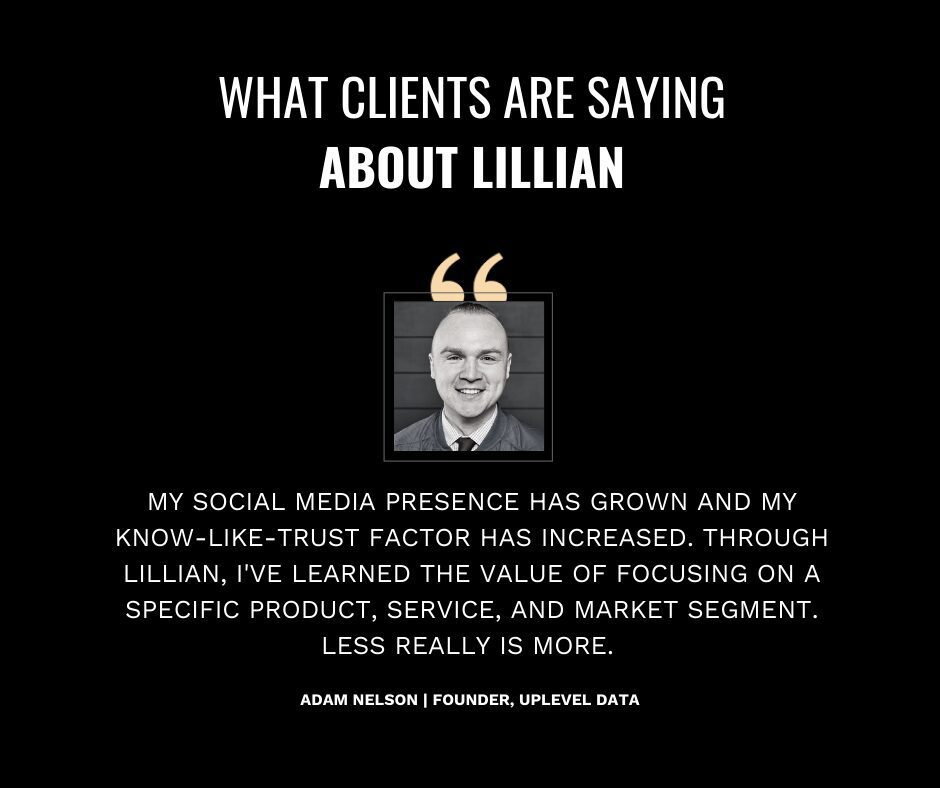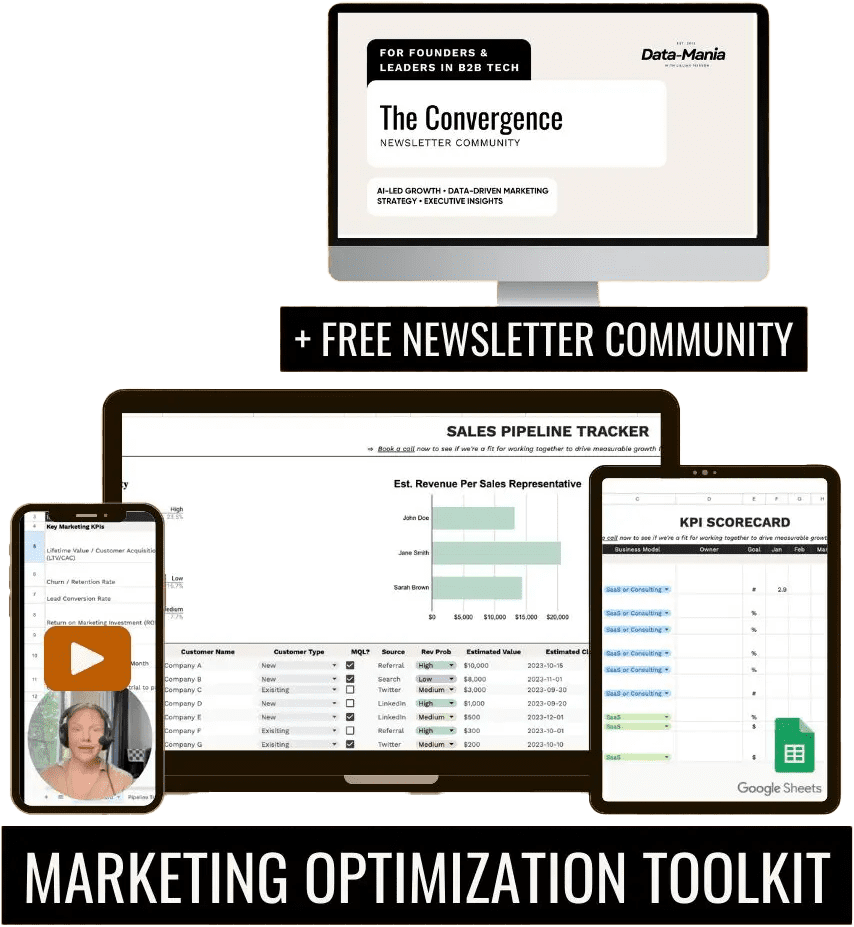A founder-led brand can be a game-changer for B2B tech startup founders. After all, founder-led brands are known to drive conversions like crazy while also generating reliable revenue growth. This blog post introduces all the most effective strategies and frameworks for building founder-led brands that both resonate and convert.
Why Founder-Led Brands Matter, Especially In 2024
The significance of a founder-led brand cannot be overstated. In an era where consumers crave authenticity, a brand steered by its founder offers a unique touchpoint. It humanizes the company, making it relatable and trustworthy. For B2B tech startups and data-centric firms, where trust and credibility are crucial, having the founder as the face of the brand can lead to deeper connections with prospects and clients.
Moreover, founders often embody the vision, mission, and values of their companies. When they actively participate in branding efforts, they infuse these elements into every interaction, creating a consistent and compelling narrative that sets the company apart from competitors.
Defining Your Unique Value Proposition
At the core of any successful brand is a clear and compelling value proposition. This is especially true for founder-led brands. The unique value proposition (UVP) should articulate what makes your company distinct in the marketplace. It’s not just about what you do; it’s about how you do it differently and why that matters to your target audience.
Begin by identifying the pain points your product or service addresses. Then, highlight how your solution uniquely solves these problems better than anyone else. Incorporate insights from customer feedback, market research, and your own expertise to craft a UVP that resonates deeply with your audience.
Crafting a Compelling Brand Story
A well-crafted brand story is instrumental in creating an emotional connection with your audience. As a founder-led brand, your personal journey can serve as a powerful narrative tool. Share the challenges you’ve faced, the triumphs you’ve celebrated, and the lessons you’ve learned along the way.
Your story should reflect not only your professional journey but also your personal values and beliefs that drive your business decisions. By weaving these elements into your brand story, you create an authentic narrative that engages and inspires trust among potential customers.
Consider incorporating these elements into your storytelling:
- Origin Story: Share how and why the company was founded.
- Personal Milestones: Highlight key achievements and turning points.
- Values and Beliefs: Communicate what drives you and your company.
Leveraging Thought Leadership and Personal Branding
Positioning yourself as a thought leader in your industry can significantly enhance your brand’s credibility. Share your expertise through various channels such as blogs, webinars, podcasts, and speaking engagements. Provide valuable insights on industry trends, emerging technologies, or best practices.
Personal branding goes hand-in-hand with thought leadership. Establishing yourself as an authority requires consistency across all platforms where you have a presence. Ensure that your LinkedIn profile reflects your expertise, share insightful content regularly on social media, and engage with industry peers to build a robust network.
Consistency is key when it comes to brand identity. From your logo to your website design, every touchpoint should reflect your brand’s core values and vision. Here are some steps to ensure consistency:
- Visual Identity: Develop a cohesive visual style that includes colors, fonts, and imagery aligned with your brand’s personality.
- Voice and Tone: Define how you communicate with your audience across different platforms—whether it’s formal, casual, or somewhere in between.
- Messaging Framework: Create key messages that convey your value proposition clearly and consistently.
Are you a startup founder or aspiring leader struggling to scale your business? It happens. Here are some common challenges you might be facing:
- Building Trust: You understand that a strong personal brand is crucial, but how do you establish one without becoming an influencer?
- Driving Traffic: You want to attract the right audience, but finding the right strategy feels overwhelming.
- Boosting Sales: You’ve got a great product or service, but converting leads into sales seems like an uphill battle.
If these challenges sound familiar, you’re not alone. Many founders and leaders face the same hurdles. The good news? There’s a solution.
Visible: Learn the secrets of building a lasting personal brand with this 47-page hands-on guide that’s designed specifically for people like you. It shows you how to build a powerful founder-led brand that builds trust, drives traffic, and boosts sales—without turning into an influencer.
Ready to take the next step? Let’s make your founder-led brand Visible!
GET THE GUIDE →
Utilizing Social Media to Amplify Your Message
Social media platforms offer unparalleled opportunities to amplify your message and connect directly with your audience. Identify which platforms are most relevant to your target demographic—LinkedIn is often ideal for B2B engagement while Twitter can be useful for sharing quick insights and engaging in industry conversations.
Create content that showcases both your professional knowledge and personal side. Share behind-the-scenes looks at your company’s operations or thoughts on recent industry developments. Use multimedia content such as videos or infographics to make posts more engaging.
Interaction is key on social media; respond to comments, participate in discussions, and show appreciation for user-generated content related to your brand. These interactions help build community around your brand.
Tips for effective social media use:
- Be Authentic: Share genuine content that reflects your journey.
- Engage Regularly: Respond to comments and participate in discussions.
- Show Behind-the-Scenes: Give followers a glimpse into the daily workings of your startup.
Building Strong Relationships with Key Stakeholders
Relationships are at the heart of any successful business venture. For founder-led brands especially, cultivating strong relationships with key stakeholders—including customers, investors, partners, and employees—is essential.
Regular communication fosters transparency and trust. Keep stakeholders informed about company developments through newsletters or exclusive updates. Show appreciation through personalized gestures like thank-you notes or recognition events.
Additionally, seek feedback regularly from stakeholders to understand their needs better and demonstrate that you value their input in shaping the direction of the company.
Measuring Success and Iterating on Your Strategy
To ensure ongoing success for your founder-led brand initiatives requires regular measurement against predefined metrics aligned with overall business goals such as lead generation rates conversion rates engagement levels etcetera
Utilize tools like Google Analytics HubSpot Hootsuite among others track performance data derive actionable insights use them iteratively refine improve strategy over time This approach ensures continued relevance impact marketing efforts ultimately drives predictable reliable revenue growth
Key performance indicators (KPIs) might include:
- Brand Awareness: Track mentions in media outlets or industry publications.
- Customer Loyalty: Measure repeat purchase rates or Net Promoter Scores (NPS).
- Engagement Metrics: Analyze likes, shares, comments on social media posts.
—
Ready to elevate your founder-led brand? Book a free consultation so we can discuss ways you can start achieving more predictable, reliable revenue growth!







